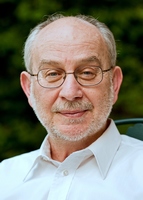Venue
The New York Academy of Medicine, 1216 Fifth Avenue at 103rd Street, New York, NY 10029
Cost
$12 General Public | $8 Friends, Fellows, Members, Seniors | Free to Students with ID
Friends, Fellows and Members: enter your email address below to receive your discount. Your discount will be applied at checkout.
Common, costly, and preventable: these traits unite the seemingly disparate diseases cancer, diabetes, obesity, heart disease and stroke—also known as chronic diseases, which now affect one in four adults in the United States. After World War I, the U.S. became the first nation to transform chronic diseases into a major political issue, seeing all communicable diseases as a single problem that required a coordinated social response. The heart of this movement was New York City and particularly its medical community centered in The New York Academy of Medicine led by Ernst Boas. Figures in the public health, social welfare, insurance and hospital administration domain also contributed to New York City’s uniquely activist chronic disease programs, which culminated in the creation in 1941 of the Goldwater Chronic Disease Hospital on Welfare (now Roosevelt) Island and in Montefiore Hospital’s pioneering home-care program. With the election of Franklin Roosevelt as President of the country in 1932, several major New York figures went to Washington and brought the chronic disease problem onto the national stage. This issue served initially as a major justification for the reform of healthcare financing. Although the political campaign for healthcare reform failed, the model of an activist chronic disease strategy spread widely by the 1950s, leading to the Commission for Chronic Disease (1949-1957) which enduringly influenced American healthcare policy during the following decades.
About the Speaker
 George Weisz is the Cotton-Hannah Chair of the History of Medicine at McGill University. He received a PhD in History from Stony Brook University and in Sociology from the University of Paris 5. He works on healthcare in Europe and North America between the 19th and 21st centuries. His two most recent books are Chronic Disease in the Twentieth Century: A History (2014) and Divide and Conquer: A Comparative History of Medical Specialization, 1830-1950 (2006). He is the author of two other monographs, over 80 articles, and editor of five collective volumes of essays in medical history.
George Weisz is the Cotton-Hannah Chair of the History of Medicine at McGill University. He received a PhD in History from Stony Brook University and in Sociology from the University of Paris 5. He works on healthcare in Europe and North America between the 19th and 21st centuries. His two most recent books are Chronic Disease in the Twentieth Century: A History (2014) and Divide and Conquer: A Comparative History of Medical Specialization, 1830-1950 (2006). He is the author of two other monographs, over 80 articles, and editor of five collective volumes of essays in medical history.
Event series:
History of Medicine and Health
View our COVID-19 Safety Protocols for attending NYAM public events.